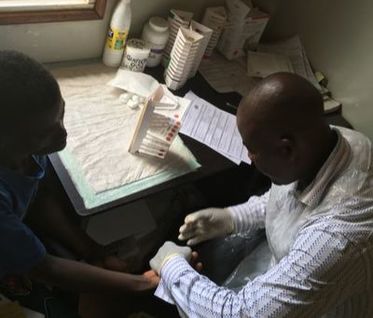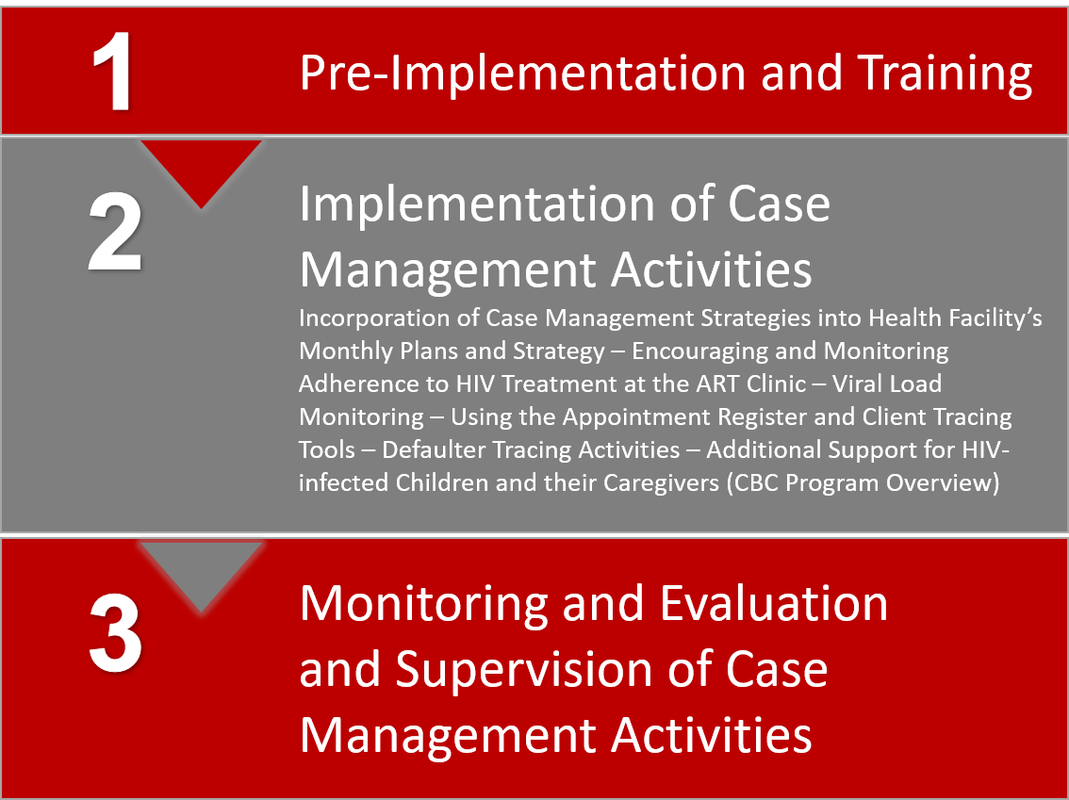HIV Case Management
|
Standard Operating Procedure Summary
|
Featured Case Studies
|
Tools and Forms
|
Appointment Register Workshop Package: This training is designed for those using the Appointment Register and corresponding Monthly Report. The workshop tools include an agenda, PowerPoint presentation, a M&E practice handout and an exam.
Patient Referral Tools: Some health facilities receive support from multiple implementing partners, support groups and organizations who work together to provide patient care and support services. The goal of the Referral Organization Information Form is to create a comprehensive directory for each health facility by obtaining information from each organization and group about their activities and services in order to collaborate and facilitate referrals. After collecting information about each of the health facility’s supporting organizations, the information can be combined in an easy-to-use binder or poster, such as the Referral Organization Summary. The Referral Tracking Tool is the last step in the process. This tool allows facilities to track patient referrals to determine if a referral was successful. Appointment Register Tools: This register is intended for use by health facilities that do not already have a way to monitor and track patient appointments. CHWs can monitor appointments and track tracing efforts for patients who have missed appointments. Client Tracing Tools: These tools are designed to support the CHW to organize and report on client tracing efforts, regardless of the reason for tracing. The Client Tracing Form provides a document to record the client’s locator information, tracing attempts and final tracing outcome. The CHW Client Tracing List helps the CHW manage and track all his/her clients that require tracing and their current tracing status. |
CBC Program Package: This procedure outlines the tools used for the CBC program, a community health worker-based routine follow-up system for HIV-infected children to improve clinical outcomes including retention and adherence to care. The tools include:
Health Talk Procedure and Topics: Health talks are 20- to 30-minute patient education sessions, usually presented by a CHW or HDA while a group of patients is waiting for their appointments, to provide education for patients on health-related issues. Community Health Worker Training Curriculum: This curriculum is designed to provide CHWs with the knowledge needed to perform any activity in this toolkit. It is recommended that all CHWs receive the full training. If that is not possible, it is recommended to specifically look at: Units 6-12. |


